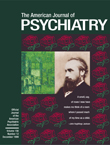Few novels in recent memory have been as eagerly anticipated as Thomas Harris’
Hannibal. Much of this anticipation centered around the title character, one of the most vividly drawn psychiatrists in all of fiction. Dr. Hannibal Lecter made his first appearance in Harris’ 1981 novel,
Red Dragon (1). Lecter appears only briefly, but the monstrous description is indelibly etched in the reader’s memory. We are told that while biting off a nurse’s tongue during an EKG, his pulse rate was stable. We also learn that he is known as “Hannibal the Cannibal” because of his habit of eating his patients (a boundary violation not specifically proscribed by the Code of Ethics of the American Medical Association With Annotations for Psychiatrists). In Harris’ 1988 book
Silence of the Lambs (2), Lecter emerges as a major character who assists FBI agent Clarice Starling in the capture of a serial killer nicknamed Buffalo Bill. Much of the dramatic tension revolves around Starling’s visits to the dungeon where Lecter is held prisoner. In exchange for information about her personal life, Starling receives tips from Lecter about the criminal she is hunting. Hannibal demonstrates extraordinary clinical acumen, which apparently coexists with psychopathy of satanic proportions. At the end of the novel, Hannibal has escaped and is at large. The novel was turned into an Oscar-winning motion picture in 1991, and Hollywood moguls have been salivating for the sequel ever since.
Fans of the first two books should be forewarned. In this blockbuster sequel, Hannibal is more victim than persecutor, more pursued than pursuer. Indeed, one could even describe him as a sympathetic character. Well, almost. This shift in the reader’s sympathies is partly related to the introduction of a new character, Mason Vergare, a surviving patient/victim of Lecter’s psychiatric “treatment” who is hell-bent on revenge. Vergare is even more malevolent and more contemptible than Lecter. He lives on a respirator with one functional eye and no face to speak of. During a therapy session, Lecter apparently departed from accepted practice guidelines and instructed the patient to cut off his face and feed it to his dogs. Lacking appreciation for Lecter’s innovative therapeutic technique, Vergare has devoted his life to tracking down Lecter and feeding him alive to specially bred carnivorous pigs.
Readers will find themselves rooting for Hannibal at times, hoping he will escape Vergare’s henchmen. Harris also makes Lecter more sympathetic by giving him a past that makes his behavior and character at least somewhat understandable. We discover that Hannibal, like Clarice, was orphaned in childhood and was traumatized when his sister was cannibalized by starving and desperate criminals. In this psychodynamically convoluted formulation, Hannibal has identified with the aggressors but is also desperately seeking to bring his sister back to life. Harris thus explains Lecter’s countertransferential (if you will) fascination with Starling, who represents his deceased sister.
Harris is clearly ambivalent in his view of psychiatry. He portrays a psychological profiler as a pompous buffoon hoping to advance his career. He has Starling refer to “psychiatric jackasses” at one point. The profiler’s hypothetical explanatory formulation of Lecter is lampooned, yet Harris’ own etiological model is delivered as a plausible means of understanding the fiend. Psychiatrically sophisticated readers will wonder how a hard-core psychopath can have such enduring and loving attachments to internal objects. Most readers could care less.
Stephen King regards
Hannibal as one of the two great horror novels of modern times (the other one is
The Exorcist [3]). Harris is without a doubt a gripping storyteller. In keeping with the cliché, I found it difficult to put the book down. Nonetheless, I found myself not wanting to know what makes Lecter tick. A monster in a horror story is much more terrifying when an air of mystery hangs over him. Humanizing Hannibal makes him less compelling as the embodiment of evil. Moreover, the ending is a letdown. Harris goes way, way over the top and strains the reader’s credulity to its absolute limit. Without giving away the details, I can say that psychiatrists and other mental health professionals in particular will find the turn of events difficult to swallow.
I still recommend this novel to those who lack delicate sensibilities and like a gory thriller. I don’t share King’s view, but if you avoid the kind of critical scrutiny that is obligatory for book reviewers, you will probably enjoy the wild ride.

